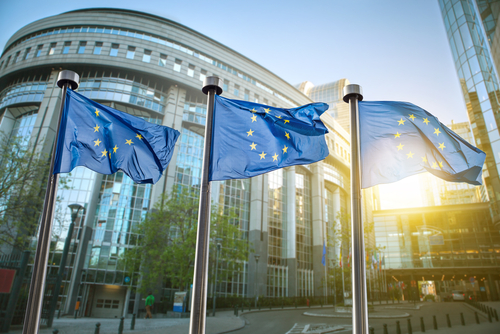The European Sea Ports Organisation (ESPO) has called on the European Union to decide on a recovery strategy from the economic crisis Europe is facing as a result of the Covid-19 crisis.
Contingency plans have been activated to ensure that the ports remain fully operational during this crisis. “The first and most important priority of European ports is to help overcome the health crisis by ensuring the continuity of their operations and providing citizens, health services and businesses with the goods and materials they need,” stated ESPO.
To ensure that ports keep going and can help revamp Europe’s economy in the aftermath of the crisis, ESPO proposes the following:
- European ports, their stakeholders and their customers must, when and where needed, be able to benefit from immediate relief measures developed at both the EU and national levels. This will help the port ecosystem to bridge the temporary lockdown and impact of some limited or non-functioning port stakeholders. This temporary support will enable European ports and related industries to catch up as swiftly as possible once the confinement measures are lifted.
- European ports ask EU policy makers to strengthen the existing support and financial instruments for infrastructure projects in ports, in particular the Connecting Europe Facility financial instrument, and to reinforce investments to allow European ports to play their role in the decarbonisation of Europe’s economy.
- Ongoing port and transport infrastructure projects which are delayed due to national lockdown measures (in particular the temporary stop of construction works) require flexibility on deadlines and should not fall under the use-it-lose-it principle. Guidance should be further developed and discussed with the relevant project managers involved in ongoing projects, taking away the current uncertainty in their planning.
- Ports with important passenger traffic and/or tourism-related activities (notably ferry connections but also cruise) suffer an even more significant drop in activity and must be given special consideration. The recovery of travel activities risks could take longer in view of the severe travel restrictions within and outside the EU. Initiatives aimed at restoring the trust in the sustainability, health and safety of maritime passenger traffic and cruise should be developed.
Isabelle Ryckbost, secretary general of ESPO, comments, “It is important that ports and the affected businesses in the port are supported when and where needed. The support must help in bridging this period of none or reduced economic activity. It is also important that port and transport infrastructure projects and investments can be pursued as planned and if possible even reinforced.”







